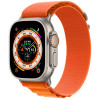The Fastest Networks
Without a doubt, Verizon Wireless' LTE network was the fastest cellular data network I tested. In every every way, Verizon Wireless beat the other networks hands-down. Whether I was downloading or uploading data, Verizon Wireless performed better than the competition. Verizon connections also showed the lowest latency, a measure of network responsiveness.
There's a big caveat here. Verizon Wireless' network is so fresh the paint isn't dry yet. By the time I had finished my testing, the LTE network had only been available commercially for one week. Networks slow down significantly as they get more crowded. With such fast performance at launch, coupled with Verizon's already-impressive brand cache, it's likely that customers in the market for a USB modem and a fast connection will flock to The Network's offering.
Verizon Wireless has made the 6-12 Mbps range its goal for network performance, and if there's one thing we know about Verizon, it takes network performance very seriously. The carrier has built its brand on its network prowess. Plus, with such impressive speeds available to early adopters, even a significant cut in performance would still keep Verizon at the top of the heap for data providers.
The fastest average download speed I recorded during my testing was a measure of more than 16 Mbps using the Verizon LTE modem in Coppell, Texas, a mid-sized suburban town. Even better, the fastest single test run I performed scored a mind-blowing 23.64 Mbps in Plano, the largest of the D/FW suburbs. That's faster than any speed I've recorded on my ultra-premium Time Warner Road Runner cable modem at home. Overall, the average speed I recorded across all of my download tests on Verizon Wireless was 11.47 Mbps.
Verizon Wireless has claimed that users should expect to see speeds between 6 Mbps and 12 Mbps. I ran more than a hundred speed tests with the Verizon LTE modem across the metroplex, and only three tests showed speeds that were under 6 Mbps. The slowest speed I ever saw on Verizon's network was a single download test that scored 3.43 Mbps. For comparison, using AT&T's Shockwave HSPA+ modem, I never saw speeds that topped Verizon's slowest score outside of the Dallas city limits. Within Dallas I saw fine download speeds using AT&T, but once I crossed into the suburbs and the Fort Worth area, AT&T's best could not beat Verizon Wireless' worst.
Upload speeds on Verizon Wireless' LTE network were also impressive. The fastest average upload I recorded for a single test site was 3.88 Mbps up using LTE in Plano, where I also saw the best download speeds. On numerous individual tests run throughout the metroplex, testing recorded upload speeds in excess of 4 Mbps. Once again, that's not only faster than the competition, that's faster than what I see on my cable modem at home.
What does this all mean in practical terms? It means that anything you can accomplish on your home network connection, you can accomplish on the go. If you want to watch streaming movies, download massive apps and files, use video chat features, or whatever bandwidth hogging task you prefer, you'll be able to do what you like with your laptop from your local Starbucks without having to hop onto the coffeeshop's crowded, free Wi-Fi connection.
A second caveat is that the faster speeds on Verizon's LTE network make it tempting to use for high-bandwidth tasks. But two or three feature films will chew through your data allotment for the month, leaving you stuck with a $50 - $80 bill for a few movies on the go, or paying $10 extra for a humble Gigabyte of data. The data cap is probably perfect for corporate users. If you'll be downloading PowerPoint decks or Excel spreadsheets, then uploading them for your team to add and edit, you'll appreciate the speed on both ends of the equation, up and down. But if you're looking for real Internet entertainment on the go, or if you'll want to


 Samsung Upgrades its Wearables
Samsung Upgrades its Wearables
 How To Take a Screenshot on Android
How To Take a Screenshot on Android
 Hands On with the HMD Fusion and its Smart Outfits
Hands On with the HMD Fusion and its Smart Outfits
 Apple Watch Goes Ultra
Apple Watch Goes Ultra









